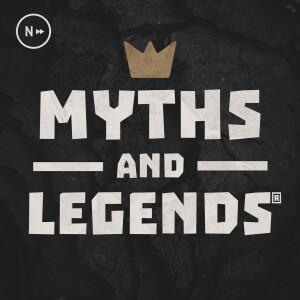

"What I Talk About When I Talk About Running" by Haruki Murakami is a memoir that incorporates elements of both memoir and essay genres. In this book, Murakami reflects on his experiences as a long-distance runner and explores the deeper connections between running and writing.
The book offers insights into Murakami's routine of running, his motivations for doing so, and its impact on his life. It delves into the mental and physical challenges he encounters while running, the discipline required, and the sense of accomplishment he derives from it. Murakami also uses the narrative to meditate on the themes of aging, determination, and self-discovery.
Throughout the memoir, Murakami intertwines his thoughts on running with his reflections on life, art, and the creative process. He draws parallels between running long distances and writing novels, emphasizing the virtues of endurance, solitude, and discipline that apply to both activities.
Overall, "What I Talk About When I Talk About Running" offers readers a unique blend of personal anecdotes, philosophical musings, and practical advice, providing insights into Murakami's life as a writer and a marathon runner while contemplating the deeper meanings behind these pursuits.
Chapter 2:Author of What I Talk About When I Talk About RunningHaruki Murakami is a renowned Japanese writer known for his unique blend of magical realism, surrealism, and postmodernism in his writings. Born on January 12, 1949, in Kyoto, Japan, Murakami has a vast literary repertoire that includes novels, short stories, essays, and non-fiction works.
Although Murakami has achieved international recognition and his works have been translated into multiple languages, he initially gained popularity in Japan in the 1980s with his novel "Norwegian Wood." Since then, he has continued to captivate readers worldwide with his distinct narrative style and thought-provoking themes.
"What I Talk About When I Talk About Running" is not a fictional work but rather a memoir by Haruki Murakami where he reflects on his passion for long-distance running and the parallels he draws between running and writing. The book was first published in 2007 and received widespread acclaim for its introspective and candid exploration of Murakami's experiences as a writer and a runner.
Murakami's writing often explores themes of alienation, existentialism, loneliness, and the blurred boundaries between the real and the imaginary. His novels, such as "Kafka on the Shore," "The Wind-Up Bird Chronicle," and "1Q84," have won numerous awards and have a dedicated global fan base.
As a writer, Murakami's prose is known for its simplicity and clarity, which allows readers to delve into his imaginative worlds and connect with his deeply human characters. He seamlessly combines elements of Japanese and Western literature, often infusing his stories with references to music, pop culture, and historical events.
Apart from his literary pursuits, Murakami is an avid runner who has participated in several marathons and triathlons. He believes that running provides him with the stamina and mental clarity required for his writing. This passion for running and its influence on his creative process is beautifully explored in "What I Talk About When I Talk About Running."
Haruki Murakami's unique narrative style and imaginative storytelling have made him one of the most celebrated contemporary authors. With a diverse range of works, he continues to inspire and intrigue readers around the world with his distinct blend of reality and fiction.
Chapter 3:why is What I Talk About When I Talk About Running worth reading- Insightful Reflections: The book offers profound insights into both the physical and mental aspects of long-distance running. Murakami uses his personal experiences as a long-distance runner to reflect on various topics such as time, aging, discipline, and perseverance. He delves into the significance of running in his life, providing readers with thoughtful reflections that can resonate with people from various backgrounds, even those who are not runners themselves.
- Unique Writing Style: Murakami's distinct writing style is on display in this book, as he seamlessly blends memoir, philosophical musings, and observations about running. His prose is engaging, introspective, and thought-provoking, making this book an enjoyable and intellectually stimulating read.
- Inspirational and Motivational: Through sharing his journey as a runner, Murakami encourages readers to find inspiration and motivation in their own lives. He emphasizes the importance of setting goals, pushing one's limits, and developing discipline and consistency. This aspect can be inspiring not only for runners or athletes but also for individuals seeking motivation and self-improvement in any aspect of life.
- Universal Themes: Although the book focuses on running, the themes explored transcend the act itself. Murakami tackles universal concepts, such as finding one's passion, the pursuit of excellence, the challenges of aging, and the relationship between physical and mental well-being. Readers can find resonance in these themes and apply the lessons they derive to their own lives, regardless of their interest or experience with running.
- Intimate Glimpse into Murakami's Life: "What I Talk About When I Talk About Running" provides an intimate insight into Murakami's routines, habits, and thoughts. As a highly regarded Japanese author, this book allows readers to gain a deeper understanding of Murakami as an individual outside of his works of fiction. It provides a glimpse into the mind of a renowned author, making it appealing for both Murakami enthusiasts and those curious about the man behind the books.
Overall, "What I Talk About When I Talk About Running" offers a unique blend of personal narrative, philosophical reflections, and universal themes. Whether for its inspiring anecdotes, captivating writing style, or insightful reflections, this book is worth reading, regardless of one's interest in running.
Chapter 4: Books like What I Talk About When I Talk About Running- "Born to Run" by Christopher McDougall
- "Running: A Love Story" by Jen A. Miller
- "The Terrible and Wonderful Reasons Why I Run Long Distances" by Matthew Inman
- "Eat and Run: My Unlikely Journey to Ultramarathon Greatness" by Scott Jurek
- "How Bad Do You Want It? - Mastering the Psychology of Mind over Muscle" by Matt Fitzgerald
- "Run Fast. Eat Slow." by Shalane Flanagan and Elyse Kopecky
- "The Perfect Mile: Three Athletes, One Goal, and Less Than Four Minutes to Achieve It" by Neal Bascomb
- "The Rise of the Ultra Runners: A Journey to the Edge of Human Endurance" by Adharanand Finn
- "Let Your Mind Run: A Memoir of Thinking My Way to Victory" by Deena Kastor and Michelle Hamilton
- "The Loneliness of the Long-Distance Runner" by Alan Sillitoe
More Episodes
All Episodes>>Creat Yourt Podcast In Minutes
- Full-featured podcast site
- Unlimited storage and bandwidth
- Comprehensive podcast stats
- Distribute to Apple Podcasts, Spotify, and more
- Make money with your podcast














